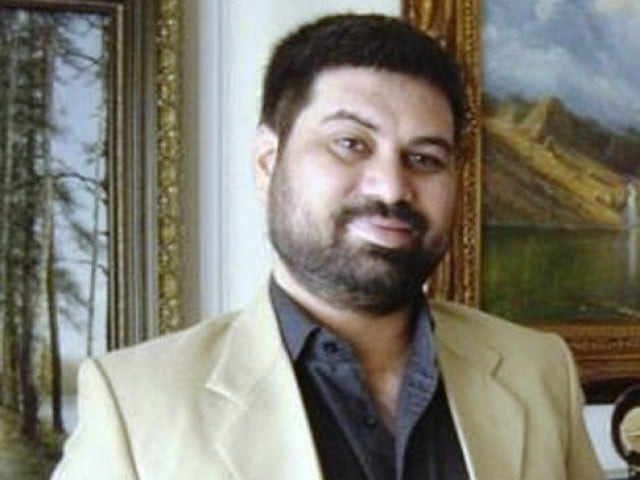"My handsome husband! Just look what they have made of him..."
An agitated online reader comments:
"Some say Tehreek-e-Taliban Pakistan killed him! Others shout security establishment killed him! One question: what is the difference between the two?"
Bright, well-read and a journalist in the true sense of the word, Saleem focused on stories linked to ethnic and sectarian terrorism. Years of reporting on al Qaeda and other terror organisations based in Pakistan had convinced Saleem that 9/11 had managed to infiltrate the country's institutions to a large measure. But this was just the tip of the iceberg.
Colleague Mazhar Abbas reflects:
"He was always outspoken. For years, I worried his beat would lead him to his death; that his bold writing on intelligence agencies, al Qaeda and Taliban, would make him a mark for the very groups he wrote about."
In one of life's sad ironies, the discovery of Saleem's body happened on the day that friends and relatives of Salmaan Taseer, the assassinated governor of Punjab province, were marking what would have been his 67th birthday. Journalist Ayesha Tammy Haq says:
"Salman was murdered for speaking out. Saleem Shahzad was murdered for speaking out, for exposing terror's roots. Every thinking person in this country is saying enough. No more silence. No more giving in to fear.”
According to Reporters without Borders, Pakistan is the world's most dangerous country for journalists, with 16 journalists having been killed in the past 14 months. Many brave journalists have been annihilated, especially in Balochistan, FATA and Khyber-Pakhtunkhwa.
Indeed, intrepid journalists in Pakistan seem to be stuck between the devil and the deep blue sea. They face threats both from within the state apparatus and the militants on the periphery. When journalists write or speak out, they receive menacing threats and are either subdued or cudgeled into submission. Saleem once joked that a spook called him and said:
"We haven't had any complaint against you for such a long time that I feel like buying you a cup of tea."
Last September, investigative reporter Umar Cheema was abducted from Islamabad for six hours and tortured before being released.
However, it is also an inescapable fact that except for an incorruptible handful, Pakistani anchors and ‘analysts’ who grace our TV screens and steer the windmills of public opinion, are intellectually dishonest and financially corrupt.
Many ‘lifafa’ journalists, from electronic as well as print media, are available for an asking price which may include residential plots, business deals, and foreign trips et al. The programming on TV channels, as well as the content and slant in the majority of newspapers, clearly reflect conservative, pro-establishment views of the owners who are busy lining their pockets as well as harnessing the power and prestige of the state for their own benefit.
Syed Saleem Shahzad was the kind of journalist I would have wanted to shake hands with and say:
"Well done! Your quest for truth makes us all proud."
But, in a country pockmarked with paragons of journalistic virtue like AA, HM, TH, HR, DAL and MB, there is a quiet and niggling despair mingled with frustration that we are losing the battle.
A country in which the majority idolise terrorists like OBL and Mumtaz Qadri (Taseer's assassin) rather than revere men of the stature of Salman Taseer, Dr Ghamdi and Dr Abdus Salam, what else can you expect? Lambs to the slaughter, we await the fall of the sharpened scythes with equanimity and a deafening silence.
Saleem's young widow Anita can only look numbly at her three devastated children. “We have lost everything. What can we do now?” sobs Saleem's son, Fahad. Outraged questions may bubble under Anita's calm facade, but she says she wants no criminal charges filed, no accusations flung at any institution or organization, no autopsy. Not surprisingly, she insists that the case should be buried with her husband.
Saleem's colleague Daud Khattak writes:
"The killers, who may be anyone among the warring sides, are at large and will remain so, cementing the impression that Syed Saleem Shahzad will not be the last to give his life for uncovering the truth in a land where everything is wrapped in confusion."



COMMENTS
Comments are moderated and generally will be posted if they are on-topic and not abusive.
For more information, please see our Comments FAQ